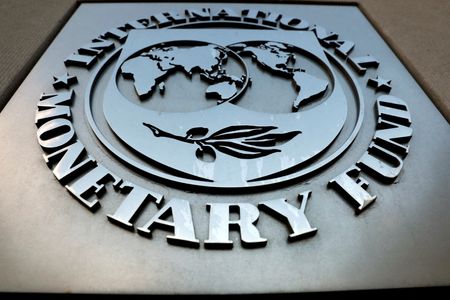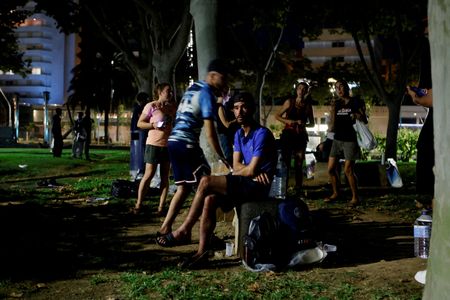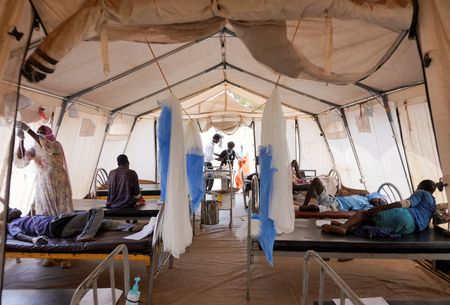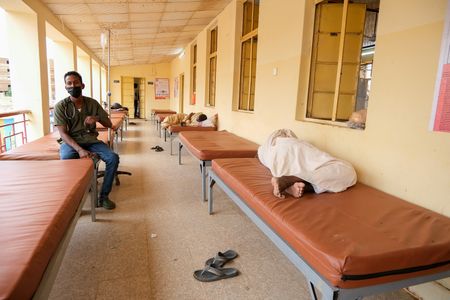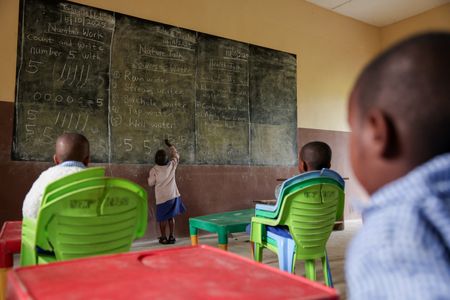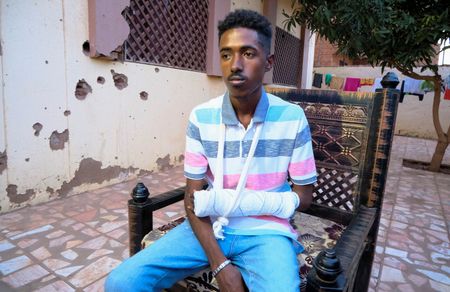NAIROBI/SANTO DOMINGO (Reuters) -More than 100 Kenyan police arrived in Haiti’s capital on Thursday to reinforce a security mission whose future has been in limbo, after the U.S. froze some funding before passing a waiver to unlock a separate batch of funds.
U.S. Secretary of State Marco Rubio, speaking from Santo Domingo alongside Dominican Republic President Luis Abinader, acknowledged that the current mission, backed by the United Nations, was not enough to solve the current crisis.
Violent gangs, armed with weapons largely trafficked from the U.S., have united in the Haitian capital Port-au-Prince and now control most of the city. Gangs also control a swathe of other areas, including agricultural heartlands.
“The solution for Haiti is in the hands of the Haitian people, in the hands of the Haitian elite,” Rubio said. “But we will help, we cannot ignore the problems there.”
The security mission, approved by the U.N. Security Council but not led by the U.N., has struggled to make headway in fighting gangs as its numbers remain far under target and it relies on voluntary contributions from member nations.
A contingent of 144 Kenyan soldiers touched down in Port-au-Prince on Thursday, with Kenyan President William Ruto adding he had spoken to Rubio about the mission.
The U.N. warned this week that the U.S. had frozen more than $13 million in funding for the security force that it had already paid into the U.N.’s dedicated fund, as part of U.S. President Donald Trump’s 90-day pause on foreign aid.
The move threw the already-shaky mission into limbo, with Haitians worried it would be shuttered altogether.
The State Department later said that Rubio had approved waivers on $40.7 million in foreign assistance to the Haitian National Police and the security mission.
That assistance will not, however, go into the dedicated U.N. fund, a State Department spokesperson said.
The violence in Haiti has displaced record numbers of residents, many internally but others fleeing to the neighboring Dominican Republic, with which Haiti shares the island of Hispaniola.
Rubio said the U.S. would not ask Dominican President Abinader to accept an influx of Haitian migrants.
Abinader in recent months launched a deportation drive to return some 10,000 migrants, mostly Haitians, to their home countries every week.
Abinader on Thursday tapped a military officer as drug czar, similar to Canada’s “fentanyl czar” post created to appease demands by Trump to crack down on the flow of illicit drugs.
Rubio will also sign a waiver to unlock funds for foreign aid programs in the Dominican Republic, he said.
(Reporting by Hereward Holland in Nairobi and Simon Lewis in Santo Domingo; Writing by Kylie Madry; Editing by Rod Nickel)



